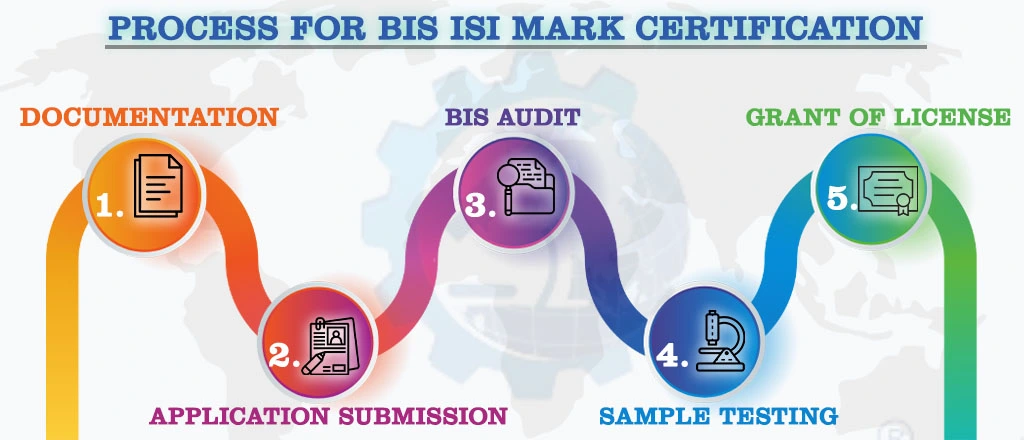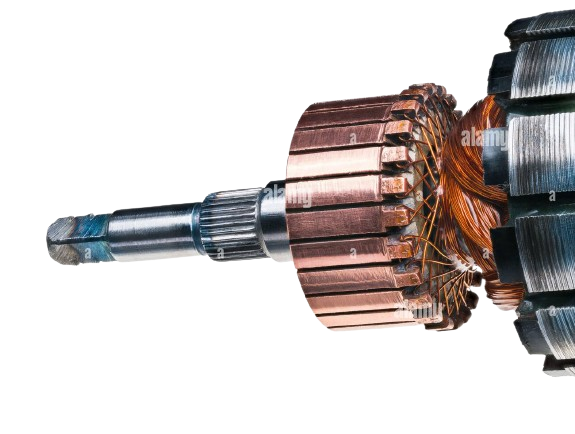BIS Certification for Steel Wire For Banding of Armatures And Rotors Part 2 Specific Requirements For Magnetic Banding Wires IS 8510 (part 2): 1977
Steel wire for banding of armatures and rotors, particularly magnetic banding wires, is essential for reinforcing and securing the components of electric motors and generators. These wires provide mechanical stability and ensure that the windings remain tightly bound during operation, preventing displacement and potential damage caused by centrifugal forces and vibrations. Magnetic banding wires are specifically designed to enhance the magnetic properties of the assembly, improving the efficiency and performance of the electrical machinery. By maintaining the integrity of armatures and rotors, these wires play a critical role in the reliable and efficient operation of various industrial and commercial electric equipment.
Importance of BIS Certification
BIS certification for steel wire used for banding of armatures and rotors, particularly magnetic banding wires, is essential to ensure these materials meet stringent quality and performance standards set by the Bureau of Indian Standards (BIS). This certification verifies that the wire possesses the necessary mechanical and magnetic properties, such as tensile strength, flexibility, and magnetic permeability, which are crucial for the effective reinforcement and operation of armatures and rotors. Adherence to BIS standards guarantees product consistency, reliability, and safety, preventing potential failures that could lead to operational disruptions or damage to electrical machinery. BIS certification also fosters consumer confidence, supports regulatory compliance, and promotes industry best practices, ensuring that magnetic banding wires meet the highest quality benchmarks necessary for demanding electrical applications.
Indian Standard IS 8510 (Part II): 1977
As per the latest Quality Control Order (QCO) issued by the Ministry of Steel, Government of India on 5th February 2024, steel wire for banding of armatures and rotors, specifically magnetic banding wires, must adhere to the Indian Standard IS 8510 (Part II): 1977. This standard specifies the essential requirements for the mechanical and magnetic properties of steel wire used in these applications. Compliance with IS 8510 (Part II): 1977 ensures that the wire maintains the necessary tensile strength, flexibility, and magnetic permeability needed for the effective reinforcement and performance of armatures and rotors. Adhering to this standard is crucial for manufacturers to guarantee the reliability, safety, and efficiency of electrical machinery across various industrial applications in India.
Key highlights
| Product Name | Steel Wire For Banding of Armatures And Rotors Part Il Specific Requirements For Magnetic Banding Wires |
| Applicable Indian Standard | IS 8510 (Part II): 1977 |
| Applicable Certification Scheme | Product Certification Scheme (ISI Mark Scheme) Scheme 1 - Schedule 2 |
| Compliance Requirement | Mandatory |
| QCO Link | Steel Wire For Banding of Armatures And Rotors Part Il Specific Requirements For Magnetic Banding Wires |
| Scope as per Standard |
This standard (Part II) lays down the requirements for chemical composition and mechanical properties for magnetic banding wires. |
Tests
The following are the major tests for Steel Wire For Banding Of Armatures And Rotors Part II Specific Requirements for magnetic banding wires.
- 1. General requirements
- 2. Ladle analysis
- 3. Product analysis
- 4. Tensile Test
- 5. Proof Stress
- 6. Wrapping Test
- 7. Surface coating

NOTE:
For Detailed Information about the Procedure for BIS ISI Certification, Visit :
Timeline for BIS Certification
The approximate timeline to obtain BIS certification for Steel Wire For Banding of Armatures And Rotors Part Il Specific Requirements For Magnetic Banding Wires to use the ISI mark as per IS 8510 (part Il): 1977 is as follows:
- For Indian Manufacturers (Standard Timeframe – 30 days)
- For Foreign Manufacturers (Standard Timeframe – 180 days)
Conclusion:
In conclusion, obtaining BIS certification for steel wire used for banding of armatures and rotors, particularly magnetic banding wires, is a critical step for manufacturers. This certification ensures compliance with the Indian Standard IS 8510 (Part II): 1977, guaranteeing that the wire meets the necessary mechanical and magnetic properties required for optimal performance. Adhering to these standards is essential for maintaining the reliability, safety, and efficiency of electrical machinery across various industrial applications. BIS certification not only enhances product quality and consumer confidence but also supports regulatory compliance and promotes industry best practices, ensuring the highest quality benchmarks are met for demanding electrical applications.
For more updates and detailed procedures, stay connected with Aleph INDIA and ensure your products are always compliant and top-quality.
International Audits & Participation
Testimonials
BIS REGISTRATION FOR ELECTRONIC & IT PRODUCT
In the era of globalization, world trade is growing rapidly and henceforth, Manufacturing and Import/Export businesses are also growing drastically...View More
BIS CERTIFICATE FOR FOREIGN MANUFACTURER
The Economy of India-the fastest developing economy on the globe with the capabilities that help it matches up with the biggest international...View More
PRODUCT CERTIFICATION SCHEME (ISI MARK) FOR DOMESTIC MANUFACTURERS
Anything a person buys from food to cars, clothes to electronics, branded to unnamed products there is always a question that wanders in one’s...View More
WIRELESS PLANNING AND COORDINATION (WPC)
WPC: Wireless means communication done from one point to another point without the wires and cables. Electromagnetic waves carry the ...View More
BUREAU OF ENERGY EFFICIENCY (BEE) CERTIFICATE
BEE CERTIFICATE: Energy is the future, and its conservation is the way of the bright future. Everyone claims the environment is important...View More
E-WASTE MANAGEMENT
E-waste is one of the world's fastest-growing trash streams. We currently manufacture almost 50 million tones of it each year...View More
View All Services
Request a call back.
Would you like to speak to one of our Senior Technical advisers over the phone? Just submit your details and we’ll be in touch shortly. You can also email us if you would prefer.






























